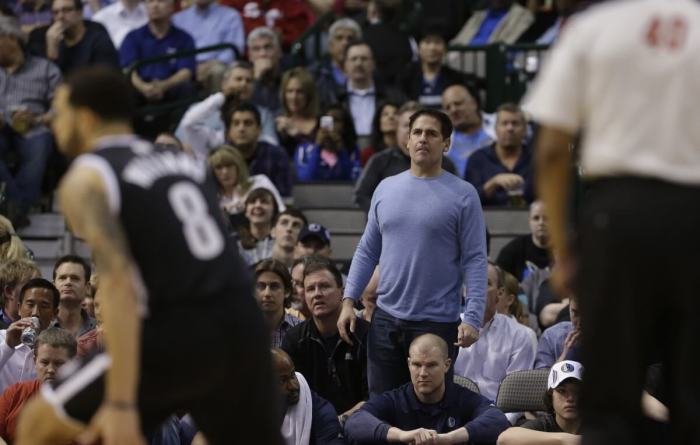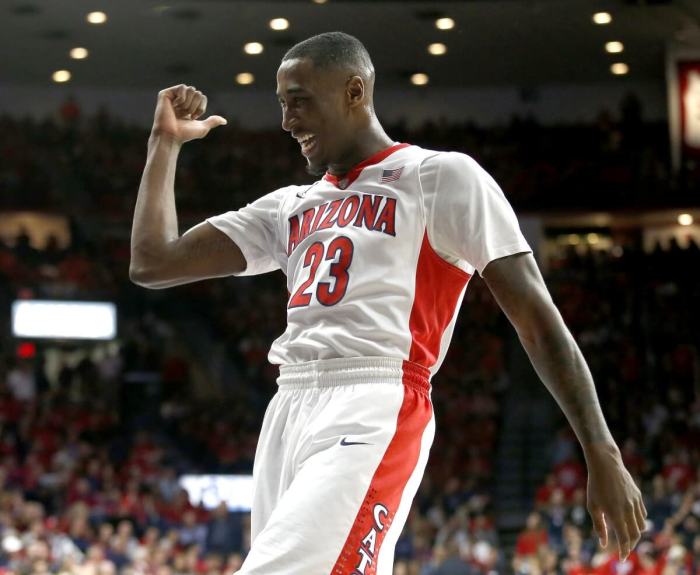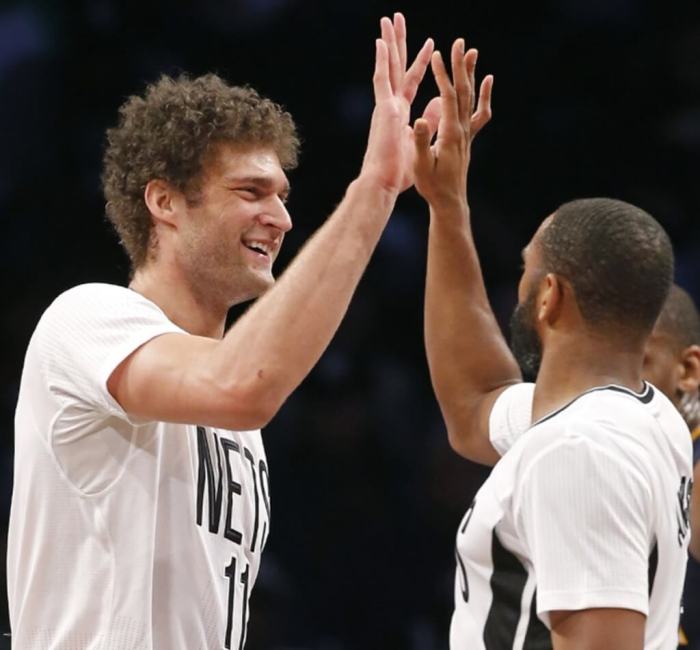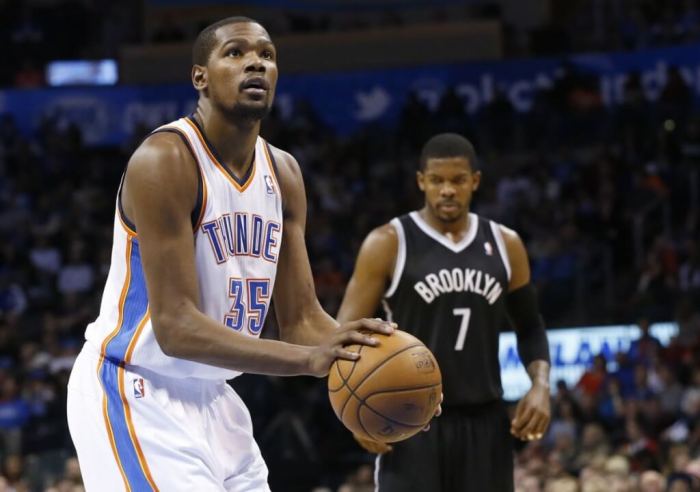It’s May 30th, and the Brooklyn Nets have just won the draft lottery, securing the rights to this year’s draft prize, Kentucky’s whirling pterodactyl Anthony Davis.
Amidst celebration, Billy King’s telephone rings. On the other side is Otis Smith, Orlando Magic general manager. He gives you one finite offer: Brook Lopez in a sign-and-trade, and the #1 overall pick, for Dwight Howard.
What do you do?
Many I’ve spoken to echo a similar sentiment: absolutely. The Nets were willing to give away Brook Lopez with some spare parts and five first-round draft picks, while still taking on Hedo Turkoglu’s contract. Trading for Howard guarantees that reluctant franchise face Deron Williams signs the maximum contract the Brooklyn Nets pray he signs, and that Brooklyn kicks off with the best point-big tandem in the NBA.
But others don’t. I am one of those others. And I’d go one step further: I wouldn’t trade the #1 pick for Howard alone.
Make no mistake: Dwight Howard is the best center in the NBA. He’s arguably the second-best player in basketball when engaged. In the midst of a season sleepwalking through his self-created Barnum & Bailey, Dwight averaged 20.6 points and 14.5 rebounds per game, led the league in rebounding, led qualified players in field goal percentage, blocked over two shots per game, and ranked in the top ten of most efficiency markers. Willfully checked out, publicly alienated by his coach, and Howard still dominated most games. According to John Hollinger, he’s averaged 16 estimated wins added per season over the course of his career, six more than the “average” #1 overall pick. But even considering his talent and his pedigree, it’s not just possible, but likely that Anthony Davis matches — and then surpasses — Dwight’s impact sooner rather than later.
Look back at the past decade, and those undisputed #1, can’t-miss players don’t fail. Yao and LeBron James were undisputed #1 picks. Dwight Howard was not — the #1 spot was a dead heat between he and Emeka Okafor — and he’s still a top-level talent today. Andrew Bogut and Andrea Bargnani were #1 picks, but neither was a can’t-miss superstar. Greg Oden was, but his descent is hardly due to talent — Oden nearly averaged a double-double in 24 minutes per game in his last 21 games in 2009-10. Derrick Rose was a can’t-miss. John Wall and Blake Griffin, too. Kyrie Irving was on the fence, and he’s put up a rookie season comparable to Chris Paul. Other than Wall, who’s trapped in Washington, D.C.’s toxicity, they’ve all either met or exceeded expectations.
Anthony Davis is one of those players.
Davis’s first-year pedigree is the stuff of legend. His freshman PER of 35.1 was only bested in the past decade by Michael Beasley (mired with pre-draft red flags) and Kevin Love. He averaged 14.2 points and 10.4 rebounds, shot 62% from the floor, recorded more steals than turnovers, averaged 4.7 blocks per game, and did most of this before his nineteenth birthday. Davis exemplifies what today’s NBA needs from its big men defensively: an ability to roam the paint and cut off driving lanes to the basket, hedge pick-and-rolls with quick recovery time, and rotate anywhere and everywhere required.
In the NCAA Championship, one could take a look at the scoring numbers and say Davis had a poor night. Six points on just 1-10 shooting, with three turnovers. Yet Davis was the undisputed player of the game (and eventually MOP of the tournament), because even with that awful shooting night, he controlled both ends of the floor. Sixteen rebounds. Five assists, tying his season high. Six blocks. Three steals. A dominating defensive presence. Intelligent offensive instincts, perhaps born from his upbringing as a guard. A 6’10” frame with a 7’4″ wingspan and wide shoulders that suggest a much stronger filled-out frame one day.
According to ESPN’s D.R.A.F.T. Initiative, the average #1 overall draft pick contributes about ten wins per year over the course of their careers. With each year uncovering more and more surefire talent, that number’s increasing. There are no more Olowokandis. The only concern is Odens, and Davis has had no serious injury concerns thus far.
It’s not a question of if Anthony Davis is going to be great. It’s a question of how great, and how quickly. Given the analysis we have available, given his physical profile, given his skillset, I think his time won’t take long. His only significant issue is a lack of strength at the NCAA level, partly due to his razor-thin frame. He’ll have time to grow into it. Just ask this guy.
Howard is currently 26 years old. By 2015, he’ll be 30, on the tail end of his prime. Given Howard’s balky back, you could argue that it’s already begun. By 2015, Davis will be just 22, and only getting better. Dealing for Dwight is the short-term fix, the one that’ll guarantee an enormous splash in Brooklyn. But looking at the hypothetical long game, it’s not one that makes sense if the terms get too high.
Billy King’s infamous for chasing superstardom — perhaps of his own volition, though surely to please his own boss, too. Dwight Howard is absolutely a superstar worth chasing, and if the price is right, the Brooklyn Nets should pounce. But if the Nets strike lottery gold, haphazardly trading it in could harm the long-term success of the franchise.



















